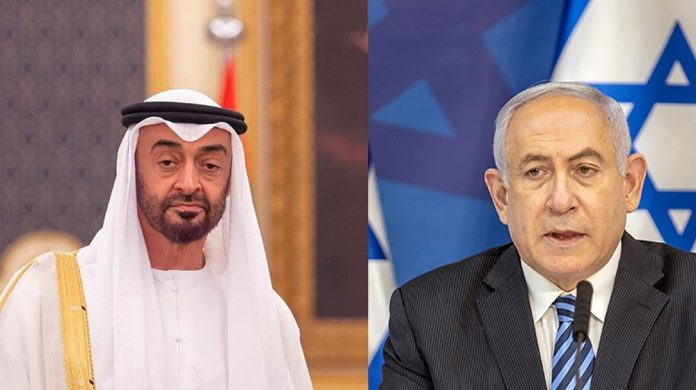The recent normalisation of ties between the UAE, Bahrain and Israel is without doubt the most important event that has taken place in the Middle East this year, and a strong signal that the Middle East is moving into a different era of regional politics. Yet for one reason or another the signing of the “Abraham Accords” has not felt as seismic an event as it probably should. This can be partially explained by the ubiquitous presence of the Coronavirus, and the impending US Presidential election, both of which have dominated the headlines in recent months.

More important is the fact that the Israeli-Palestinian conflict is simply not as central to regional and global security as it has been in years gone by. The outbreak of the Arab Spring in 2011 and the subsequent collapse of Syria, Yemen, Libya into multiyear civil wars have seen millions of (mostly young) Arabs fighting for justice and rights in their own nations. These problems have been made worse by countries across the region who have exploited state fragility to pursue their own agendas, often at the direct expense of regional rivals. Turkey, Iran, UAE, Qatar, Saudi Arabia and Israel have been especially active, sponsoring armed proxies, undertaking military operations outside their borders, and using slanted media outlets to pursue agendas that are diametrically opposed. This has opened up rifts right across the region, breaking apart any supposed norms of consensus, be they Arab or Islamic unity.
This breakdown of unity has been central to creating space for both the UAE and Bahrain to openly increase ties with Israel without fear of reprisal from other Arab states. Indeed rather than face harsh opprobrium from “brotherly” Arab countries there has been little in the way of push back, with the Arab League voting down a proposal to condemn normalisation. Ten years ago such a notion would have been unthinkable.
Against the backdrop of global power shifts in which the US has begun to retreat from its hegemonic position in the Middle East, the normalisation of ties between some Arab states and Israel should be seen as part of a great rebalancing of power in the region. Previous models of political and military organisation, such as the Arab League, and the GCC have ceased to become effective, a fact that became clear during the darkest days of the Syrian civil war, and the dying embers of the 2011 Arab spring. As protests and conflict swept the region, many states made their own calculations as to how best to protect themselves from domestic instability, conflict and wider regional tensions. Countries began to pursue narrow agendas, often in contradictory fashion to neighbouring nations that had been allies leading to diplomatic ruptures and chaotic competition (particularly among the Gulf States). The competition between so many players, all with competing agendas made understanding regional order all but impossible.
However as US retrenchment has begun leaving power vacuums across the region a pattern is beginning to form, to the extent that it is now possible to see three broad alliances in the Middle East emerging:
The Axis of Resistance
First is The axis of Resistance led by Iran, which include elements in the Iraqi state, Syria, and pro Iranian elements in Lebanon such as Hezbollah and Amal. These actors can broadly be defined by their hostility to Israel, and deep distrust of the West. Western allies are seen as enabling colonialist powers which are to be resisted. The majority of actors in this grouping are connected to Shia Islam.
The Anti-Axis Powers
Secondly are The anti-axis powers, Israel, Saudi Arabia and the UAE. All three maintain strong relationships to the West and its defence institutions. They are deeply hostile to Iran and its allies, viewing them as fomenters of instability and discord. They also harbour a deep dislike for political Islamist movements that are active across the region, seeing Turkey and Qatar as troublemakers who do not sufficiently oppose Iran, and who look to overturn the established order.
The Entente Cordiale
Thirdly the Entente Cordiale of Turkey and Qatar, (with allies such as the GNA of Libya and Hamas in Gaza). These powers maintain close ties to Western capitals, and are regular users of Western defence equipment, and have a position on Israel that is tolerant albeit more supportive of the Palestinians. However, this alliance maintains a workable if frosty relationship with Iran, and has become a die–hard opponent of the anti-axis powers, blocking their goals across the region through military and financial means by frequently backing actors are sympathetic to political Islam.
The emergence of these three alliances is a neo-realist’s dream, in the face of decaying regional hegemony states in the region have begun to compete, with smaller regional players teaming up with larger more powerful players to create balances of power. A neo-realist might further argue that the formation of these power structures will lead to a form of stability as the three axes cancel each other out.
There is some sense to this argument, the chance of any of these three axes going to war with each other is low, and each axis has strengths that the other two lacks. The resistance axis has managed to penetrate local politics and militaries in weak states in such an effective way that its influence cannot be removed. The anti-axis powers have access to the highest end military technology and ample financial resources, all backstopped by a nuclear deterrent. Meanwhile the Entente Cordiale has the sheer weight and power of a major NATO military force, backed up by the enormous wealth and fiscal resources of Qatar.
The three axes will compete, most fiercely in weaker states whose leaders are unable to resist the lure of weapons and financing. It is certain to exacerbate instability and ensure continued tension in the region for many years to come, but most likely ensure that no further escalation occurs. This is the new order of things in the Middle East, and it is likely to stay this way for years to come.
The views in this article represent those of the Author alone; not CHACR, the Army or the MOD.





